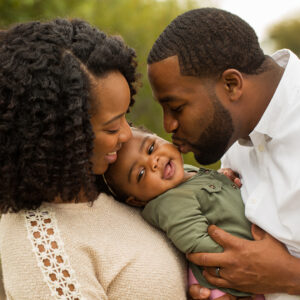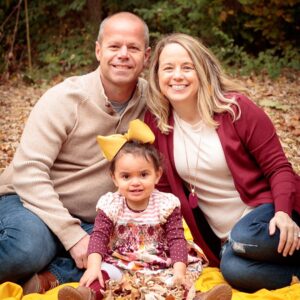








Previous
Next
The journey of adoption is filled with emotions, struggles, and beauty. From potential adoptive parents to birth parents to adoptees, everyone involved understands it is an incredibly sensitive process. For this reason, it can be difficult for anyone outside the adoption triad to truly understand the adoption experience. It can be difficult to know where to begin if someone is seeking to better understand the journey of adoption. LFCS is here to help those who would like to learn more about the details of the adoption process.
We asked our adoption team to answer some of the most common questions they are asked by prospective adoptive parents. We want to share their responses with you so that you can better understand what the journey of adoption can look like. Our adoption team believes it is important to have accurate information and aims to build awareness to all considering this extremely personal decision.
How long does the adoption process normally take?
On average, a private domestic adoption takes between 12-18 months for a waiting adoptive family to become matched. Many variables go into finding the perfect fit between expectant/birth parents and potential adoptive parents, and LFCS wants to make sure everyone feels the situation is just right for both parties. LFCS encourages adoptive families to be patient during this process because it can take time. It can be a long and difficult process, but the result will be a lifelong connection with a child who is deeply loved.
How much does adoption typically cost?
A typical private, domestic adoption costs between $20,000 & $40,000. These costs include the home study, education/training for adoptive parents, birth parent support, and legal fees. We know this can be expensive for many families. LFCS can help families apply for grants to help cover the expenses. We want to minimize any barriers that keep adoptive couples from completing their family.
What is an open adoption and why is it important?
Openness in adoption refers to the type and amount of interaction between birth family, adoptive family, and the adoptee, as well as the access a child has to their full identity and heritage. Contact among all parties may involve shared updates and pictures or in-person visits. Openness allows the birth family, adoptive family, and the adoptee to maintain contact and build a relationship over time. Openness benefits everyone in the adoption triad, especially adoptees. Openness allows adoptees access to their adoption story and details about their birth heritage, even if contact with their birth family isn’t possible. Open adoption also helps birth parents feel confident that their child is safe and thriving. LFCS utilizes the Inclusive Family Support Model of openness to help families navigate this important relationship in adoption.

Can an adoptive couple choose a child’s race, gender, or other characteristics?
During the home study process, adoptive parents are approved to adoption children based on what kind of child they feel equipped to parent. LFCS does not approve families based on a specific gender, but we do take into consideration a couple’s ability to support a child’s racial/ethnic heritage and health/mental health background. Additionally, the decision-making power is in the hands of each adoptive couple as they review the information in each matching situation.
Can a birth parent change their mind after the adoption is finalized?
We understand that many factors must be considered when faced with such an important decision. Pregnant women considering adoption often re-evaluate their plan as they move through the adoption process. The caring case workers at LFCS support clients throughout their pregnancy and delivery, whether they choose to parent or make an adoption plan. This support and guidance often gives expectant parents confidence in whatever plan they ultimately choose. In addition to support during pregnancy and placement, birth parents are also invited to receive ongoing support through post-adoption services offered through LFCS.
Once a child is placed for adoption, the legal process begins. Birth parents voluntarily consent to having their parental rights terminated so the adoption can move forward. This is the last point at which the birth parents can change their minds, as the consent process is legally-binding. This is why the LFCS adoption team continually educates and counsels birth families to make sure they understand every aspect of the permanent decision they are making. Once consents have been signed, adoptive families have two hearings during their adoption journey: one to transfer legal custody of the child to their family and the other to finalize their adoption. While many adoptive families fear that their adoption could be easily overturned, this fear is not supported by facts. It is extremely rare for adoptions to be overturned after an adoption has been finalized.
